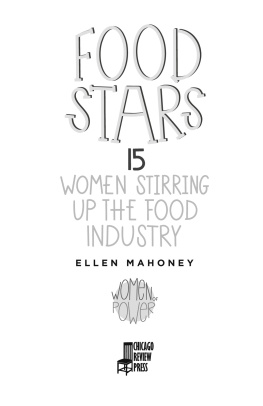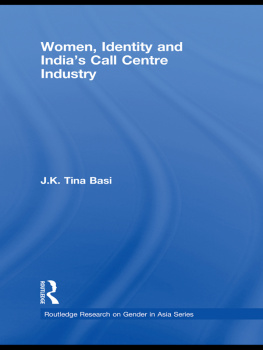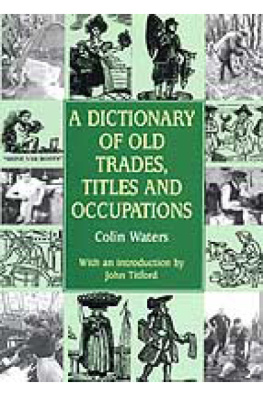Demons of Domesticity
Modern Economic and Social History Series
General Editor: Derek H. Aldcroft
Titles in this series include:
Insuring the Industrial Revolution
Fire Insurance in Great Britain, 17001850
Robin Pearson
Lives of the Philadelphia Engineers
Capital, Class and Revolution, 18301890
Andrew Dawson
Arms and the State
Sir William Armstrong and the Remaking of British Naval Power,
18541914
Marshall J. Bastable
The Seaside, Health and the Environment in England and
Wales since 1800
John Hassan
Lancashire Cotton Operatives and Work, 19001950
A Social History of Lancashire Cotton Operatives in the
Twentieth Century
Alan Fowler
Industrial Clusters and Regional Business Networks in England,
17501970
Edited by John F. Wilson and Andrew Popp
The Rise of Management Consulting in Britain
Michael Ferguson
The Myth of Mr Butskell
The Politics of British Economic Policy, 195055
Scott Kelly
Demons of Domesticity
Women and the English Gas Industry, 18891939
ANNE CLENDINNING
Nipissing University, Canada
First published 2004 by Ashgate Publishing
Published 2016 by Routledge
2 Park Square, Milton Park, Abingdon, Oxon OX14 4RN
711 Third Avenue, New York, NY 10017, USA
Routledge is an imprint of the Taylor & Francis Group, an informa business
Copyright 2004 Anne Clendinning
Anne Clendinning has asserted her moral right under the Copyright, Designs and Patents Act, 1988, to be identified as the author of this work.
All rights reserved. No part of this book may be reprinted or reproduced or utilised in any form or by any electronic, mechanical, or other means, now known or hereafter invented, including photocopying and recording, or in any information storage or retrieval system, without permission in writing from the publishers.
Notice:
Product or corporate names may be trademarks or registered trademarks, and are used only for identification and explanation without intent to infringe.
British Library Cataloguing in Publication Data
Clendinning, Anne
Demons of domesticity : women and the English gas industry, 18891939. (Modern
economic and social history)
1. Women employees England History 19th century
2. Women employees England History 20th century 3. Gas industry England
History 19th century 4. Gas industry England History 20th century
I. Title
331.481363630942
Library of Congress Cataloging-in-Publication Data
Clendinning, Anne, 1957
Demons of domesticity : women and the English gas industry,
18891939 / Anne Clendinning.
p. cm. (Modern economic and social history)
Includes bibliographical references.
ISBN 0-7546-0692-9 (alk. paper)
1. Gas industryEnglandHistory. 2. Gas appliancesEnglandMarketingHistory.
3. Gas industryEnglandEmployeesHistory. 4. WomenEmploymentEngland
History. I. Title. II. Modern economic and social history series.
HD9581.G73E543 2002
338.4768388dc21
2002038375
ISBN 9780754606925 (hbk)
Typeset by DC Graphic Design Ltd, Swanley, Kent.
In memory of
Marjorie Clendinning
and
Beth Johnston
Contents
Economic and social history has been a flourishing subject of scholarly study during recent decades. Not only has the volume of literature increased enormously but the range of interest in time, space and subject matter has broadened considerably so that today there are many sub-branches of the subject which have developed considerable status in their own right.
One of the aims of this series is to encourage the publication of scholarly monographs on any aspect of modern economic and social history. The geographical coverage is world-wide and contributions on non-British themes will be especially welcome. While emphasis will be placed on works embodying original research, it is also intended that the series should provide the opportunity to publish studies of a more general and thematic nature which offer a reappraisal or critical analysis of major issues of debate.
Derek H. Aldcroft
University of Leicester, UK
This study developed out of my interest in the history of women and work. In 1995, British Gas was undergoing the difficult process of privatisation and restructuring after 50 years of public ownership. One aspect of this corporate restructuring included the eventual elimination of the companys home service departments, staffed by women with home economics training. The idea for this book originated from conversations with women I knew who worked for British Gas. While they were concerned about their own futures within the company, the women also referred to the long tradition of public service to their customers that home service had represented. It was from Fiona Gould, Beth Johnston and Pat Davy, that I first learned of womens long history with the gas industry in England. From the moment I heard about them, I was fascinated with the Victorian lady demons, and their successors in home service, whose contributions to the history of women, work and business remained undocumented in a formal way. To the lady demons, past and present, who used their resourcefulness, common sense and good humour to create careers for women within the masculine world of business, I acknowledge your inspiration. This book is for lady demons everywhere.
Numerous individuals have assisted with the researching and writing of this book. This work began as a doctoral dissertation for McMaster University and I extend thanks to my supervisor, Richard Rempel, for his initial enthusiasm for this project. His encouragement, guidance and critical insight enabled me to complete this work. My thanks also go to the other members of my dissertation advisory committee, including Ruth Frager and Wayne Thorpe for their comments and astute criticisms, and Paul Fritz for his suggested readings on the history of consumption. I extend a special thanks to my external reader, Deborah Gorham, for her insightful and challenging evaluation of this work.
To the librarians, archivists and historians at the institutions where I worked, I offer my thanks for their invaluable assistance. At the outset, conversations with Brian Harrison, Sarah Milan and Penny Sparke helped me to develop a critical framework for the lady demon research, particularly with respect to the related histories of British feminism, womens work and domestic technology. David Doughan directed me towards some very useful archival sources located at the British Library and the Womens Library. This project would not have been possible without the assistance of Michael Hills, the director of the former London Gas Museum, then located in Bromley-by-Bow. I spent many hours in the museums basement archive, and sincerely appreciated Michaels generosity with the photocopying machine. His assistance by mail and fax continued until the museum closed and the collection relocated in 1999. Helen Ford, the head archivist at the National Gas Archive, and Anita Whitten, the librarian for the Institution of British Gas Engineers, have assisted with locating sources and documents, and I thank them for their time and patience in responding to my frequent questions. In this regard, I must also thank Julia Anne Lambert, curator of the John Johnson Collection, Bodleian Library, Alan Wakefield and Yvonne Oliver, from the Imperial War Museum and also S. Powlette at the British Library for assistance in gaining permission to reproduce photographs from their respective collections. At the University of Toronto, Jim Ingram from Photographic Services in Robarts Library assisted with the images from the








